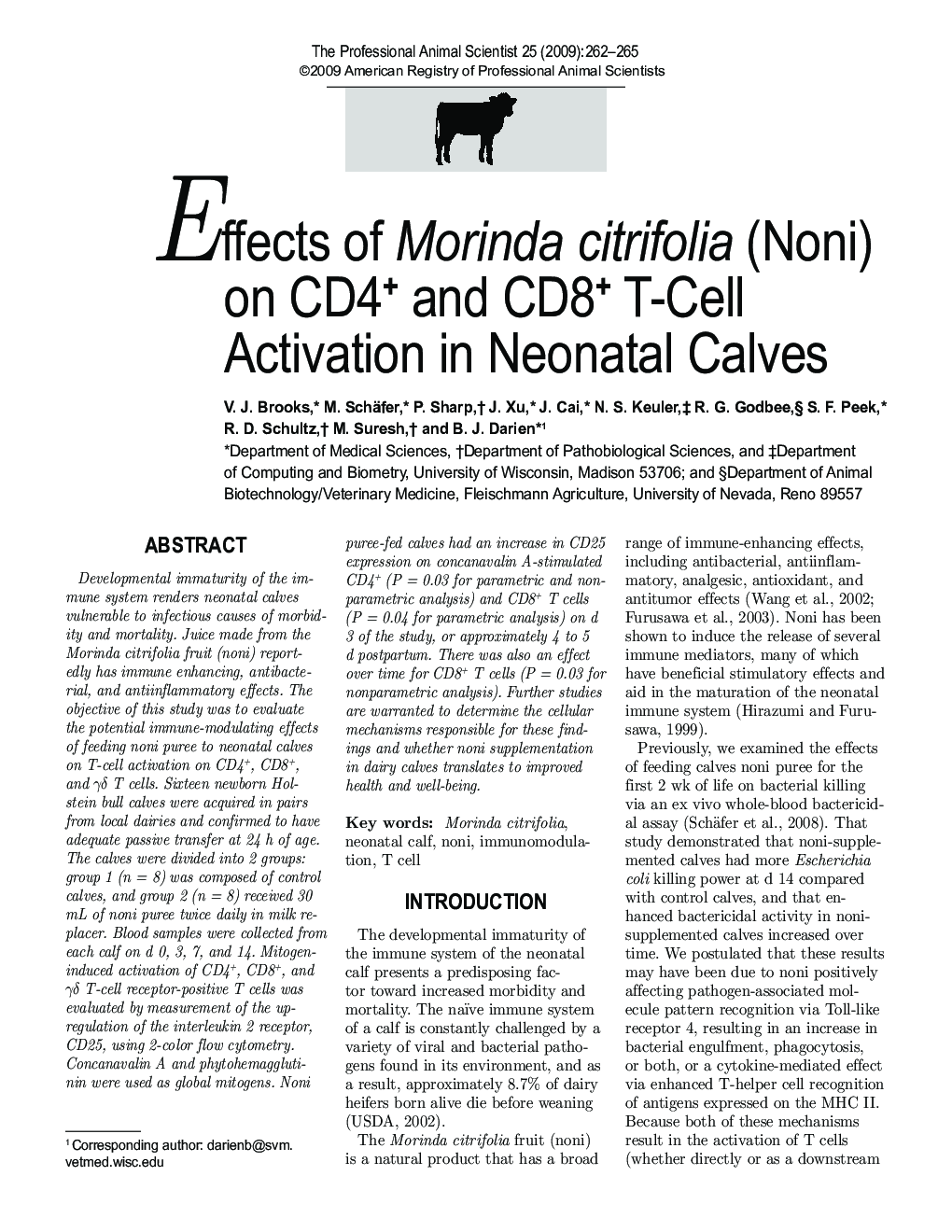| Article ID | Journal | Published Year | Pages | File Type |
|---|---|---|---|---|
| 2454380 | The Professional Animal Scientist | 2009 | 4 Pages |
Abstract
Developmental immaturity of the immune system renders neonatal calves vulnerable to infectious causes of morbidity and mortality. Juice made from the Morinda citrifolia fruit (noni) reportedly has immune enhancing, antibacterial, and antiinflammatory effects. The objective of this study was to evaluate the potential immune-modulating effects of feeding noni puree to neonatal calves on T-cell activation on CD4+, CD8+, and γδ T cells. Sixteen newborn Holstein bull calves were acquired in pairs from local dairies and confirmed to have adequate passive transfer at 24 h of age. The calves were divided into 2 groups: group 1 (n = 8) was composed of control calves, and group 2 (n = 8) received 30 mL of noni puree twice daily in milk replacer. Blood samples were collected from each calf on d 0, 3, 7, and 14. Mitogen-induced activation of CD4+, CD8+, and γδ T-cell receptor-positive T cells was evaluated by measurement of the upregulation of the interleukin 2 receptor, CD25, using 2-color flow cytometry. Concanavalin A and phytohemagglutinin were used as global mitogens. Noni puree-fed calves had an increase in CD25 expression on concanavalin A-stimulated CD4+ (P = 0.03 for parametric and nonparametric analysis) and CD8+ T cells (P = 0.04 for parametric analysis) on d 3 of the study, or approximately 4 to 5 d postpartum. There was also an effect over time for CD8+ T cells (P = 0.03 for nonparametric analysis). Further studies are warranted to determine the cellular mechanisms responsible for these findings and whether noni supplementation in dairy calves translates to improved health and well-being.
Related Topics
Life Sciences
Agricultural and Biological Sciences
Animal Science and Zoology
Authors
V.J. Brooks, M. Schäfer, P. Sharp, J. Xu, J. Cai, N.S. Keuler, R.G. Godbee, S.F. Peek, R.D. Schultz, M. Suresh, B.J. Darien,
